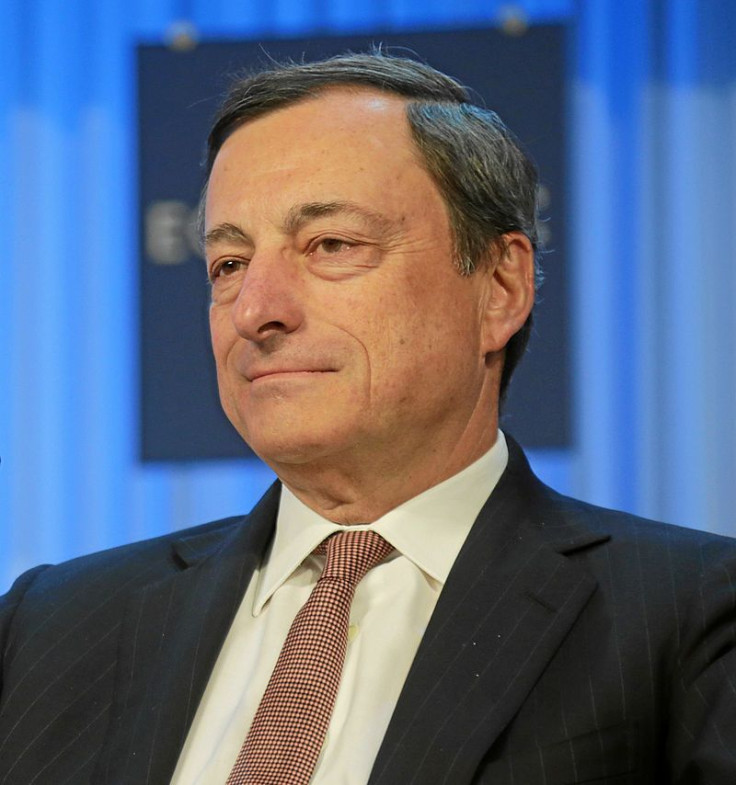ECB's Mario Draghi Is Softening Position On Government Deficits, Indicates Economies Need Stimulation

European Central Bank President Mario Draghi indicated this week he's open to easing rules on government deficits, saying something has to be done to get the European economy going again. In remarks at the Federal Reserve Bank of Kansas City’s annual conference in Jackson Hole, Wyoming, Draghi said he is becoming increasingly concerned about low inflation and high unemployment.
Draghi’s comments were made days after reports showed the eurozone economy came to a screeching halt during the second quarter, leaving many to wonder if the area’s $13.5 trillion economy is suffering from a stubborn period of high unemployment rates. Eurozone unemployment was at 11.5 percent in July while inflation fell to 0.4 percent.
"The risks of 'doing too little'" and allowing temporary unemployment to become more entrenched "outweigh those of 'doing too much' -- that is, excessive upward wage and price pressures," Draghi added.
Draghi said countries should do more within EU regulations, noting Germany, the largest economy in the eurozone, could benefit from reducing taxes and increasing investment, the Financial Times reported. Draghi said, however, he's not inclined to support a massive bond purchase program like the one just ended in the United States.
"It would be helpful for the overall stance of policy if fiscal policy could play a greater role alongside monetary policy, and I believe there is scope for this, while taking into account our specific initial conditions and legal constraints,” Draghi said.
He also addressed the sluggish pace at which workers are being hired.
“The most recent GDP data confirm that the recovery in the euro area remains uniformly weak, with subdued wage growth even in nonstressed countries suggesting lackluster demand. In these circumstances, it seems likely that uncertainty over the strength of the recovery is weighing on business investment and slowing the rate at which workers are being rehired,” he said.
The eurozone consists of Austria, Belgium, Cyprus, Estonia, Finland, France, Germany, Greece, Ireland, Latvia, Luxembourg, Malta, Portugal, the Netherlands, Slovenia, Spain and Slovakia.
© Copyright IBTimes 2025. All rights reserved.






















